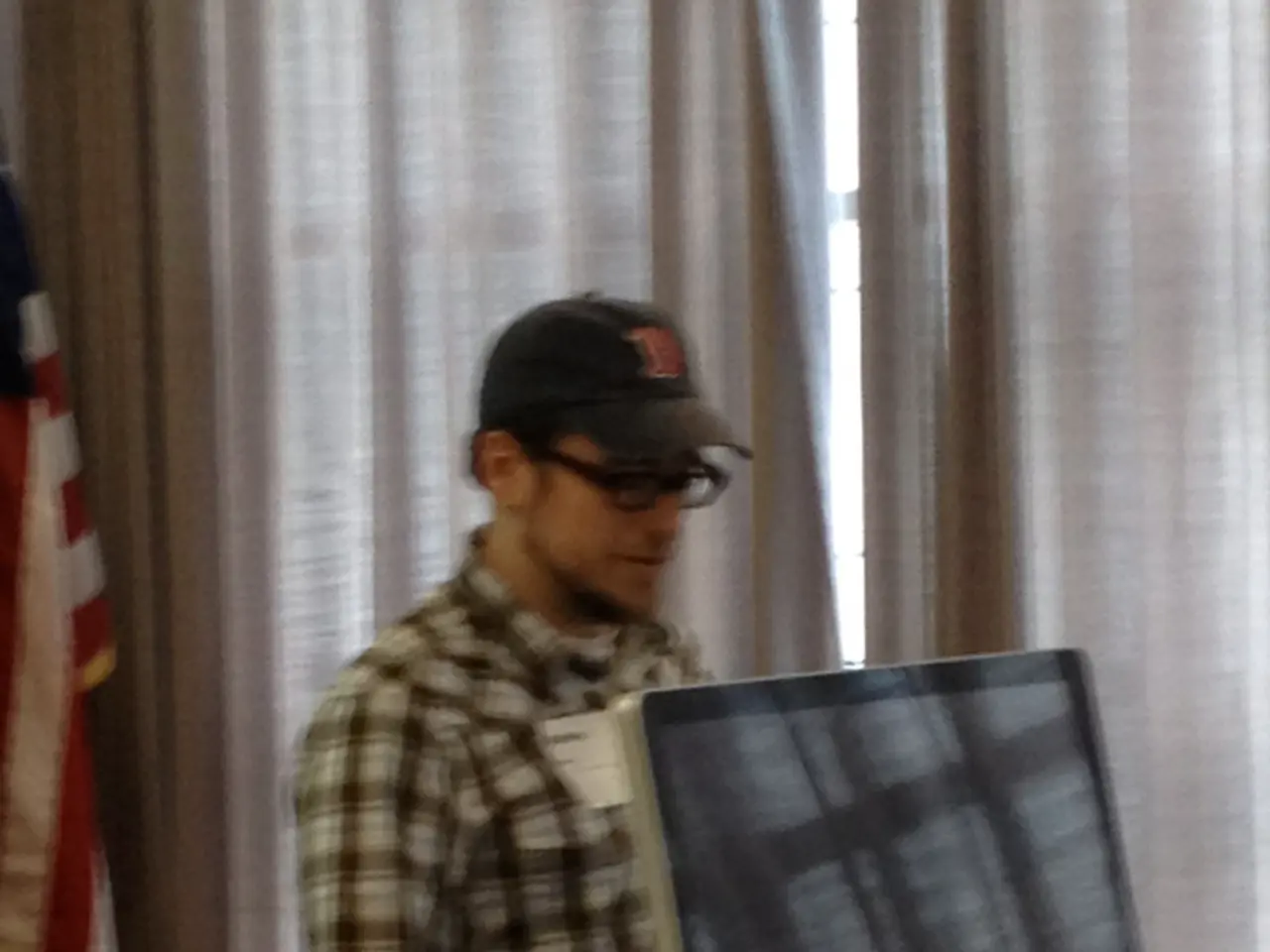Macron's Political Ideologies and Plans for Europe: An Insight into His Governance Approach
Emmanuel Macron: A Visionary Leader Shaping Europe's Future
Emmanuel Macron, the French President, has emerged as a central figure in European politics, significantly influencing the political landscape of France and the EU. His political philosophy and vision for addressing global challenges are shaped by a blend of liberal, pro-European, and globalist intellectual influences.
Born in Amiens, France, in 1977, Macron's academic journey took him to the University of Paris-Nanterre where he studied philosophy, influenced by thinkers like Paul Ricoeur, Hegel, and Marx. Later, he attended the École nationale d'administration (ENA), a prestigious French institution that trains leaders for the public service.
Macron's political philosophy is a synthesis of neoliberalism, social liberalism, and a deep conviction in the importance of European unity and international cooperation. He perceives France as a moral compass of the West, believing it can lead even when European institutions or other powers hesitate.
One of Macron's key focuses is the integration and sovereignty of Europe. He advocates for a "European sovereignty" that entails increased integration, common policies on defense, migration, and fiscal resources, and the creation of pan-European institutions. He envisions Europe as a “model for a humanist refoundation of globalisation,” emphasizing the EU as a political and moral project rather than just a market union.
Macron embodies a left-wing liberalism and supports globalism, opposing nationalist and populist movements. He promotes a vision where the European identity transcends nationalistic patriotism and ethnic essentialism. His leadership style is described as theatrical but purposeful, leveraging France’s cultural superiority to influence global discourse and policy.
Critical engagement with modernity and postcolonial thought also play a role in Macron’s intellectual milieu. His admirers like philosopher Achille Mbembe challenge Eurocentric understandings of modernity while advocating a pluralistic vision of politics and culture beyond essentialism. This suggests Macron's openness to evolving intellectual currents that address global justice and identity issues.
Pragmatic realism and strategic vision are also key components of Macron's approach. Despite internal political challenges and lack of stable parliamentary majority, Macron actively pursues a proactive global role, mediating conflicts, promoting European strategic autonomy, and managing complex diplomatic controversies to assert France’s position on the world stage.
Since 2017, Macron has advocated for deeper integration and stronger European cooperation, unlike his predecessor who often pursued a cautious consensus approach. The coming years will reveal how far Macron can implement his ambitious goals and whether he can lead Europe out of its current crisis of political fragmentation.
Macron's policy is often perceived as technocratic, as it is based on facts, efficiency, and the creation of solutions based on current data. He supports a two-state solution that respects the rights of Palestinians and the security of Israel as the only way to achieve lasting peace. He also criticized Israel's continued settlement policy and repeated acts of violence by Palestinian groups.
Macron's work experience, including his time as an investment banker at Rothschild & Cie, has influenced his understanding of financial markets and the challenges of globalization. He aims to make the French labor market more flexible and competitive to promote economic growth.
In the realm of foreign policy, Macron proposes the creation of a European army and closer cooperation in foreign policy to enable the EU to act united and with one voice in global affairs. He views the European Union as a protective space for preserving European values, such as democracy, rule of law, and human rights, in an increasingly insecure world.
The Kohl-Mitterrand era (1980s to Early 1990s) was a historic high in the Franco-German relationship, with both leaders significantly contributing to the success of the Maastricht Treaty of 1992. Gerhard Schröder and Jacques Chirac continued the close cooperation between Germany and France, creating the European single market and introducing the euro. Macron's diplomatic solutions and fair and balanced peace process reflect this tradition of close cooperation.
In conclusion, Macron’s political thought blends progressive neoliberalism, commitment to European federalism, and a vision of France as a leader in global diplomacy rooted in liberal values, humanism, and strategic cultural confidence. His philosophy thus reflects influences from contemporary European integrationist thought, liberal globalism, and some elements of critical postcolonial theory, although mediated through a pragmatic, diplomatic approach to global challenges.
- Emmanuel Macron, advocating a blend of neoliberalism, social liberalism, and a strong belief in European unity, envisions a Europe that emphasizes humanist refoundation of globalization.
- Macron, with a deep conviction in European integration, proposes increased cooperation in defense, migration, and fiscal resources, and the creation of pan-European institutions.
- He supports a vision where the European identity transcends nationalistic patriotism and ethnic essentialism, opposing nationalist and populist movements.
- Macron's policy is technocratic, based on facts, efficiency, and the creation of solutions based on current data, such as advocating for a two-state solution to achieve lasting peace.
- In foreign policy, Macron proposes the creation of a European army and closer cooperation to enable the EU to act united and with one voice in global affairs.
- Critical engagement with modernity, postcolonial thought, and pluralistic politics beyond essentialism also play a role in Macron's intellectual milieu.
- Macron's leadership style is described as theatrical but purposeful, leveraging France’s cultural superiority to influence global discourse and policy.
- His work experience, including time as an investment banker, has influenced his understanding of financial markets and challenges of globalization, aiming to make the French labor market more flexible and competitive.




